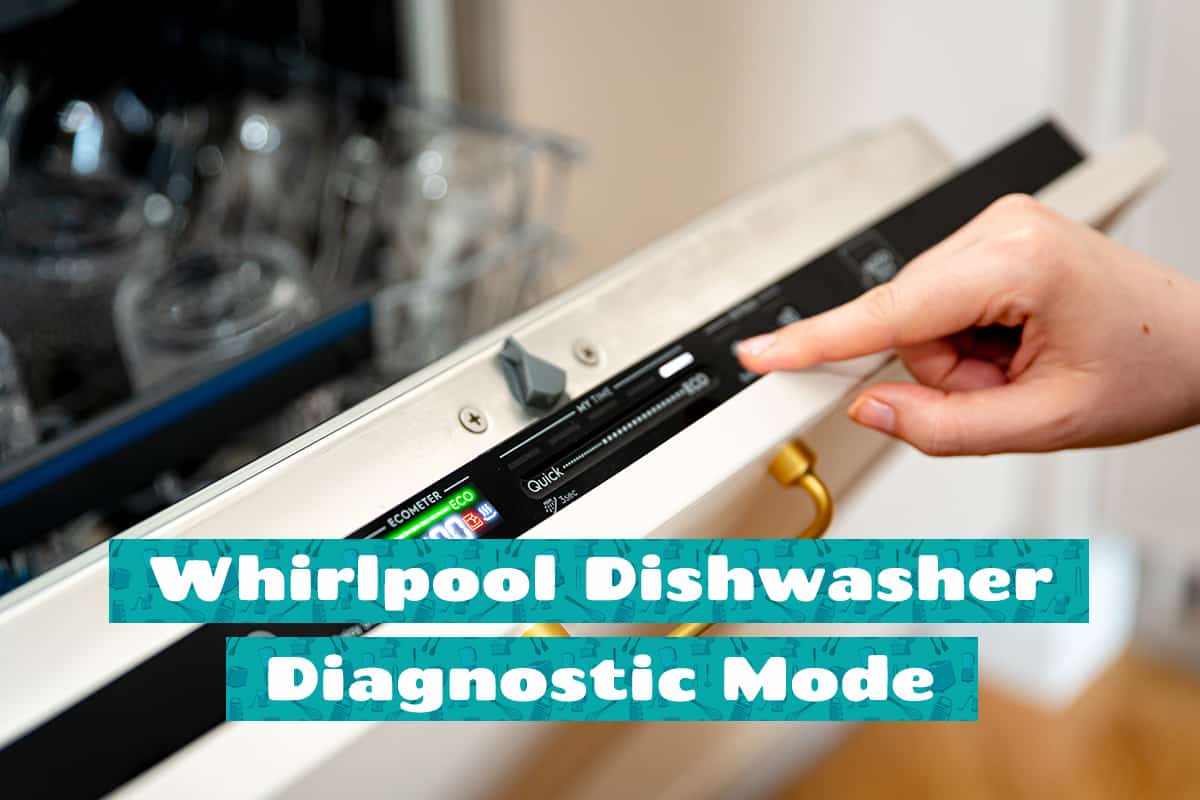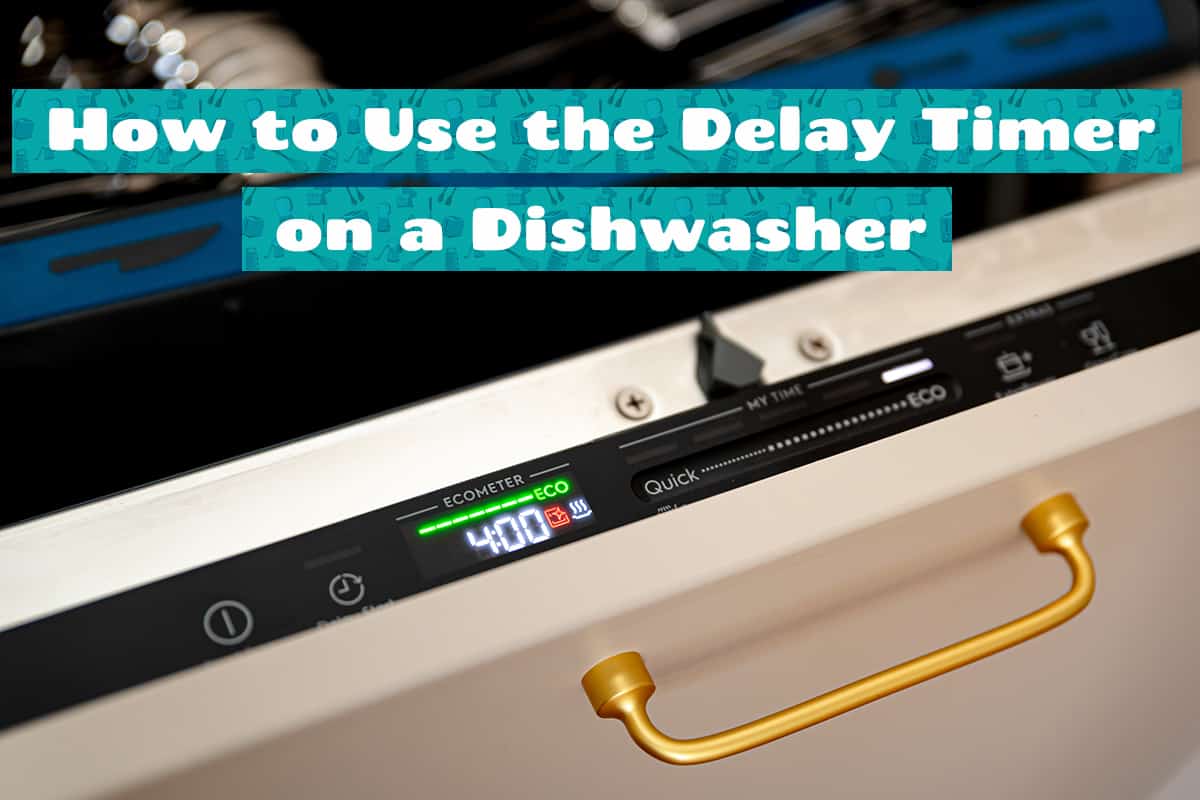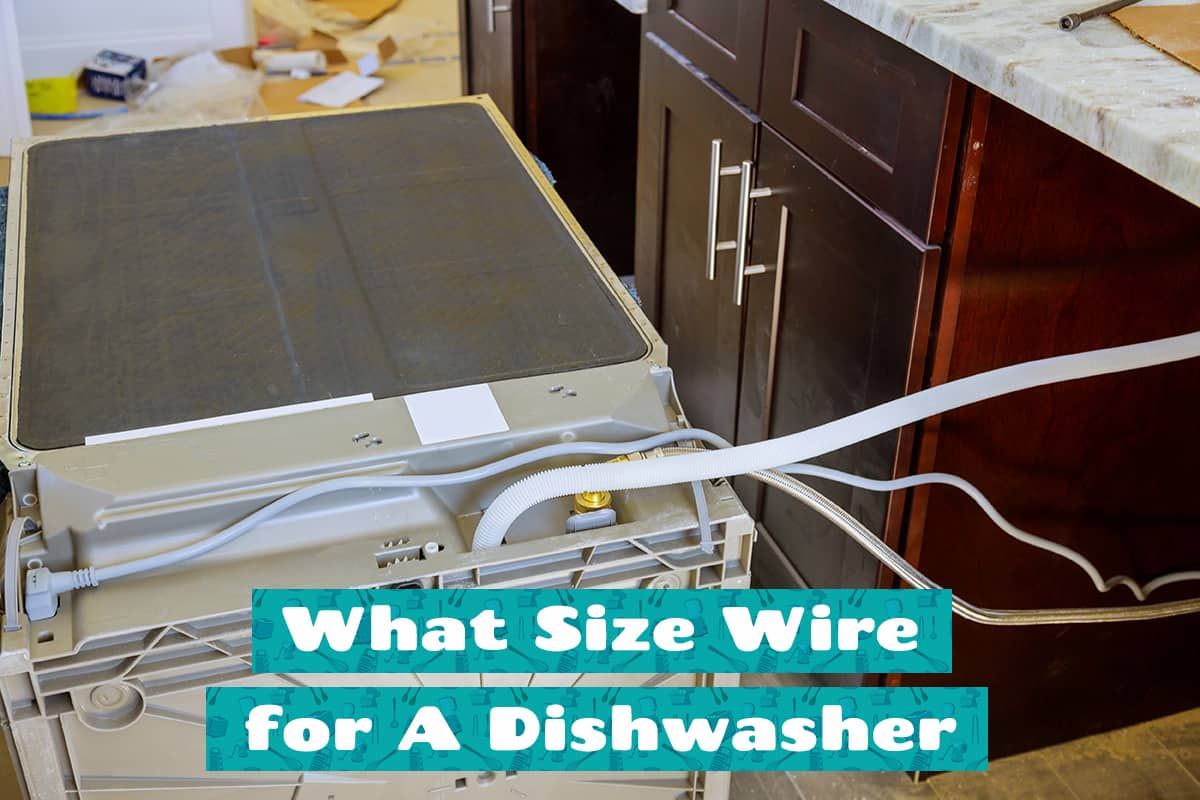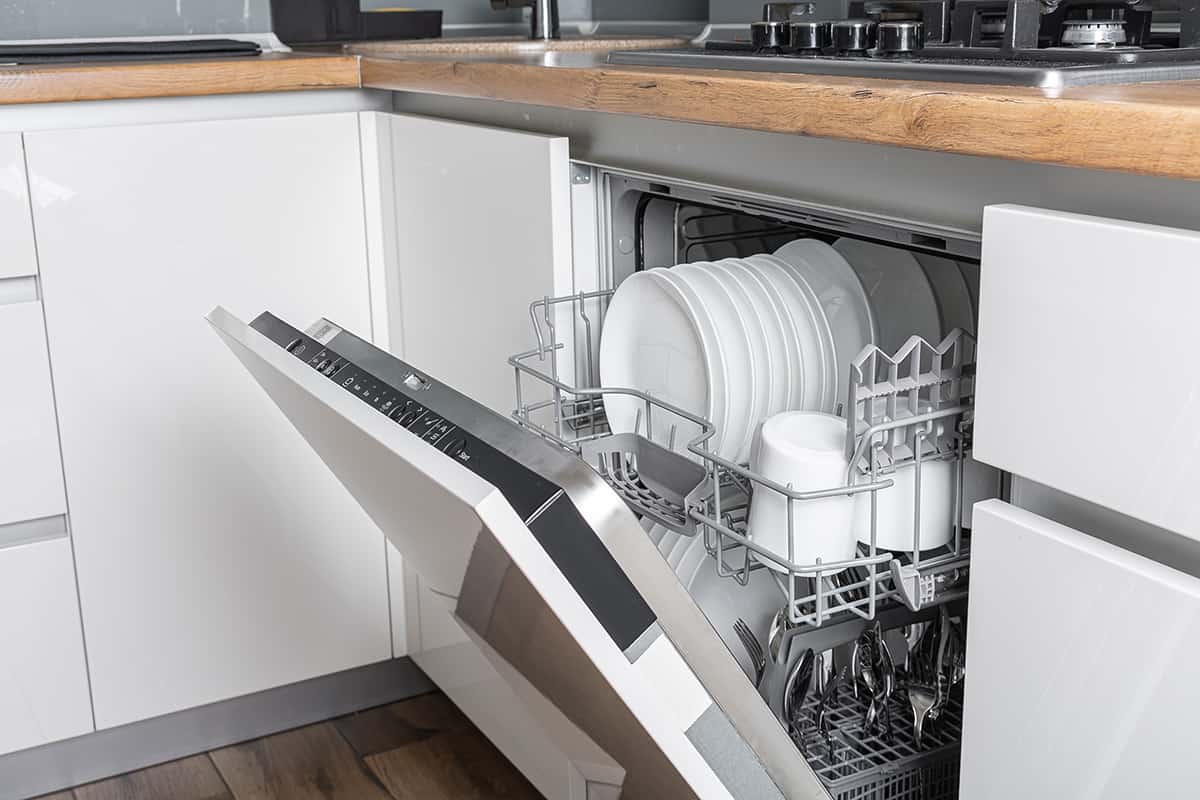Dishwashers have long been an integral part of the modern kitchen. As technology has evolved, so have our appliances, and the drawer dishwasher is a testament to this innovation. These dishwashers differ from traditional models by featuring pull-out drawers that wash dishes rather than the standard drop-down door.
Pros of Drawer Dishwasher:
- Space-saving design
- Energy and water efficiency
- Convenient for smaller loads
- Enhanced ergonomics
- Advanced features
Cons of Drawer Dishwasher:
- Higher initial cost
- Limited capacity
- Potential for higher repair costs
- Learning curve for usage
This guide will further elaborate these points and provide a list of things you need to consider before finalizing your purchase. Ready to learn more about these innovative appliances?
What is a Drawer Dishwasher?
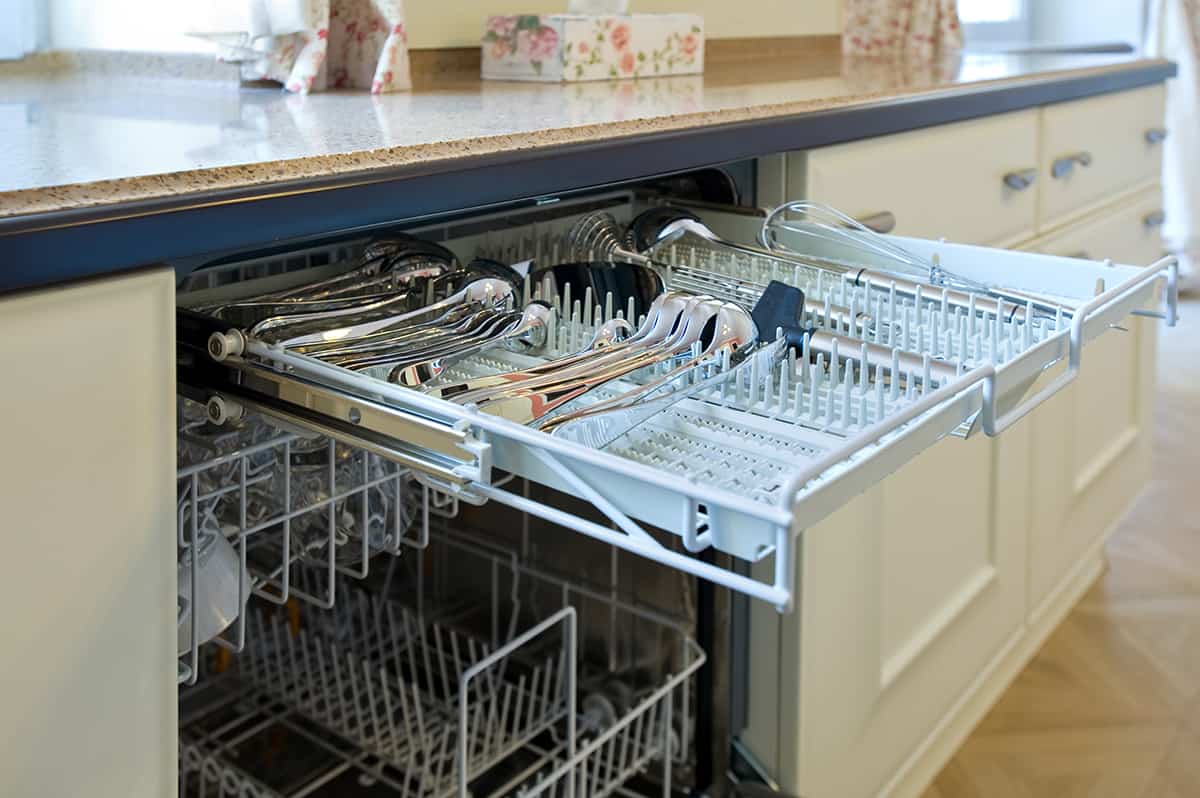
A drawer dishwasher is a modern take on the traditional dishwasher, designed to blend seamlessly into kitchen cabinets. Instead of a single, front-opening door, it uses one or more pull-out drawers to hold and wash dishes. Commonly available in single or double drawer variants, these dishwashers offer homeowners a flexible and space-conscious solution for their dishwashing needs.
The design principle of the drawer dishwasher is straightforward. When closed, it looks like any other kitchen drawer. On opening, inside you’ll find racks designed to hold dishes, cutlery, and glasses. Depending on the model, the racks can often be adjusted to accommodate larger pots and pans.
One notable feature of drawer dishwashers is their ability to operate independently. For double drawer models, you can run one drawer on a heavy wash cycle for pots and pans, while the other handles a delicate cycle for glassware. This simultaneous functionality is not only efficient but also energy-saving.
Over the years, drawer dishwashers have gained traction, especially in urban apartments and contemporary homes. Brands like Fisher & Paykel have led the charge, championing the benefits of the drawer design. Today, several manufacturers offer such models.
Pros of Drawer Dishwashers
If you’re thinking about getting a drawer dishwasher, here are several reasons that support your purchase decision.
1. Space-Saving Design
In kitchens where space is at a premium, the drawer-style seamlessly integrates, resembling regular kitchen drawers. Single-drawer models, in particular, can be installed in smaller spaces or even in kitchen islands, optimizing the kitchen layout.
2. Energy and Water Efficiency
Drawer dishwashers are champions when it comes to energy and water conservation. Their design allows users to run half-loads without wasting water or electricity, making them eco-friendly. Many models come with Energy Star ratings, signifying their superior energy efficiency. These dishwashers tend to consume less water per cycle, especially when used for smaller loads, contributing to reduced utility bills.
3. Convenience and Flexibility
If you have delicate glassware and heavy-duty pots, you can wash them simultaneously using different settings. This flexibility means homeowners can customize each wash according to the load type. Moreover, if you have fewer dishes, you can run just one drawer, offering a practical solution for smaller washing needs.
4. Enhanced Ergonomics
Bid goodbye to bending over to load or unload your dishwasher. The drawer design is at a convenient height, reducing strain on the back and knees. This ergonomic advantage makes the process more comfortable, especially for those with mobility challenges. The design also reduces the risk of dropping dishes since they’re transferred horizontally rather than lifted up or down.
5. Advanced Features
Modern drawer dishwashers come loaded with a plethora of features that make dishwashing a breeze. Some models have smart technology integration, allowing users to control and monitor wash cycles from their smartphones. Additionally, adjustable racks, soil sensors that adjust the wash cycle based on how dirty the dishes are, and quiet operation modes are often standard features.
6. Aesthetic Appeal
From a design perspective, drawer dishwashers offer a sleek and contemporary look. Their ability to seamlessly blend into cabinetry gives kitchens a more streamlined appearance. Plus, many models offer customizable panels, so homeowners can match the dishwasher to their cabinetry, adding to the aesthetic cohesion of the kitchen.
Cons of Drawer Dishwashers
As fantastic as drawer dishwashers are, there are a few arguments to be made against them.
1. Initial Cost
While drawer dishwashers offer many benefits, they typically come with a higher upfront price tag than traditional models. This cost can be a deterrent for some homeowners, especially if they’re on a tight budget.
2. Limited Capacity
The drawer design means that these dishwashers might not hold as many dishes as full-sized, traditional ones. This can be an issue for larger households or those who entertain guests frequently. Double-drawer models can alleviate this to an extent, but they still might not match the capacity of larger traditional units.
3. Maintenance and Repair
Due to their unique design, drawer dishwashers can sometimes require specialized parts and expertise for repairs. This can make maintenance more challenging and potentially more costly. If a part malfunctions, finding a replacement or a technician familiar with the model might take longer.
4. Learning Curve
Adapting to a new appliance always takes time, and drawer dishwashers are no exception. Homeowners might need some time to get used to the different loading strategies and functionalities. While these models are user-friendly, the initial adjustment can be a bit of a hurdle for some.
5. Long-Term Durability Concerns
There have been concerns regarding the durability of some drawer dishwasher models when compared to their traditional counterparts. Some users have reported wear and tear issues cropping up sooner than they expected.
Considerations Before Purchase

The most important question you should ask yourself is, “Do I need a drawer dishwasher?” Take these points into consideration before finalizing your purchase!
1. Understanding Your Household Needs
The first step before investing in a drawer dishwasher is evaluating your household’s specific needs. How many members are in your family? How often do you run a dishwasher cycle? For smaller families or those who don’t accumulate many dishes daily, a drawer dishwasher can be a perfect fit. On the other hand, larger families might find the capacity limiting.
2. Budgeting and Cost-Benefit Analysis
You should compare the benefits you’re receiving with the price you’re paying. Will the energy and water savings over time offset the initial price? Also, consider potential maintenance costs in your budgeting.
3. Installation and Integration
Check if your kitchen layout can easily accommodate a drawer dishwasher. For those building a new kitchen or undergoing a renovation, this is less of a concern. However, if you’re replacing an old dishwasher with a drawer model, you might need modifications. Some models can be integrated into your existing cabinetry for a seamless look.
4. Warranty and Support
A robust warranty can save you from unforeseen expenses down the line. Also, it’s a good idea to see if the manufacturer provides reliable customer support and if there are technicians in your area familiar with the brand and model.
5. Features and Customizability
While most drawer dishwashers come with standard features, some models might offer extras that could be of interest. From smart technology integration to customizable racks, list out the features that are non-negotiable for you. If you have specific dishes or utensils that need regular washing, check if the dishwasher can accommodate them comfortably.
FAQs
1. Are drawer dishwashers noisier than traditional ones?
Drawer dishwashers are generally designed to operate quietly. In most cases, they have similar or even lower noise levels than traditional ones. However, it’s always a good idea to check the decibel rating of the specific model you’re considering.
2. Is a drawer dishwasher suitable for large families?
While they are highly efficient for smaller households or occasional use, larger families who generate many dishes might find the capacity a bit restrictive. For frequent, larger loads, traditional dishwashers might be more suitable.

